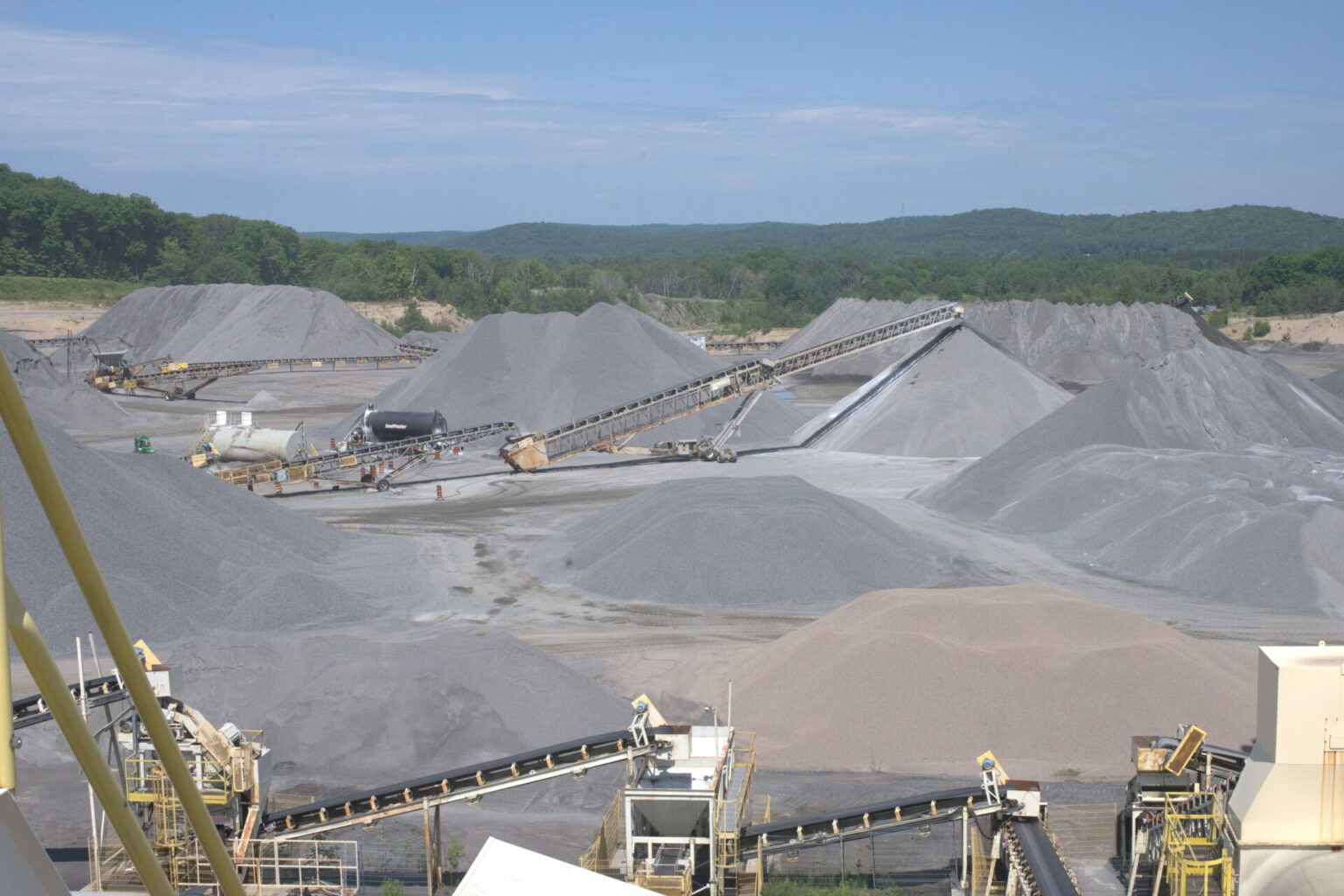Commercial Aggregate Sales
Contact for Rosewarne, Childs, Madill, Whites, Haliburton, Thomas, Robinson
Tony Madden
Material Sales
Cell 705-204-5628
Email tmadden@fowler.ca
Contact for McDougall & Tilson
Curtis Ralph
Material Sales
Cell 705-644-4896
Email cralph@fowler.ca
General Sales
Lynn Remmelgas
Direct 705-646-5721
Email lremmelgas@fowler.ca
"Commercial aggregate" typically refers to aggregates produced and sold commercially for construction and infrastructure projects. Aggregates are granular materials, such as sand, gravel, crushed stone, or recycled materials, used in constructing roads, buildings, and other structures.
Whether you are bidding or constructing a parking lot, a highway or a hydroelectric dam, Fowler can supply you with high-quality granular, clear stone and specialty products to help you get your project completed cost-effectively. No project is too small or too large.
Fowler can supply:
- Quarried granular products
- Clear Stones
- Sand and Gravel products
- Concrete aggregates
- Waterbody aggregates
- Topsoils
- Landscaping materials
- Specialty products such as cold-mix, rock protection and winter sand
Here are key points related to commercial aggregates:
- Types of Aggregates: Commercial aggregates can include various types based on the source material and size. Common types include natural aggregates like sand and gravel and crushed stone derived from quarried rocks. Recycled aggregates from demolished structures or industrial by-products may also be included.
- Grading and Size: Aggregates are often categorized based on their particle size distribution. Grading is essential for achieving the desired properties of the final construction material, whether it's concrete, asphalt, or other applications.
- Applications: Commercial aggregates are used in a wide range of construction applications. They are critical components in concrete mixes, asphalt mixes, road bases, and other construction materials. The specific type and size of aggregate used depend on the construction project's requirements.
- Supply Chain: Commercial aggregates are typically produced by quarries, gravel pits, or processing facilities. These facilities extract, process, and sell aggregates to construction companies, contractors, and other entities involved in infrastructure projects.
- Standards and Specifications: The production and use of commercial aggregates are often governed by industry standards and specifications. These standards ensure that the aggregates meet certain quality and performance criteria for specific applications.
- Local Availability: The choice of commercial aggregates often depends on their local availability and cost. Proximity to construction sites is essential in minimizing transportation costs and environmental impact.
- Sustainability: There is an increasing emphasis on sustainability in the construction industry, including using sustainable aggregates. Recycled aggregates and alternatives to traditional sources are explored to reduce the environmental impact of aggregate extraction.
- Regulations: Depending on the region, there may be regulations governing the extraction, processing, and use of commercial aggregates to ensure environmental protection and safety.
When considering commercial aggregates for a construction project, it's essential to adhere to local regulations, specifications, and standards to ensure the quality and performance of the materials. The specific requirements for aggregates can vary based on the intended application and regional guidelines.

